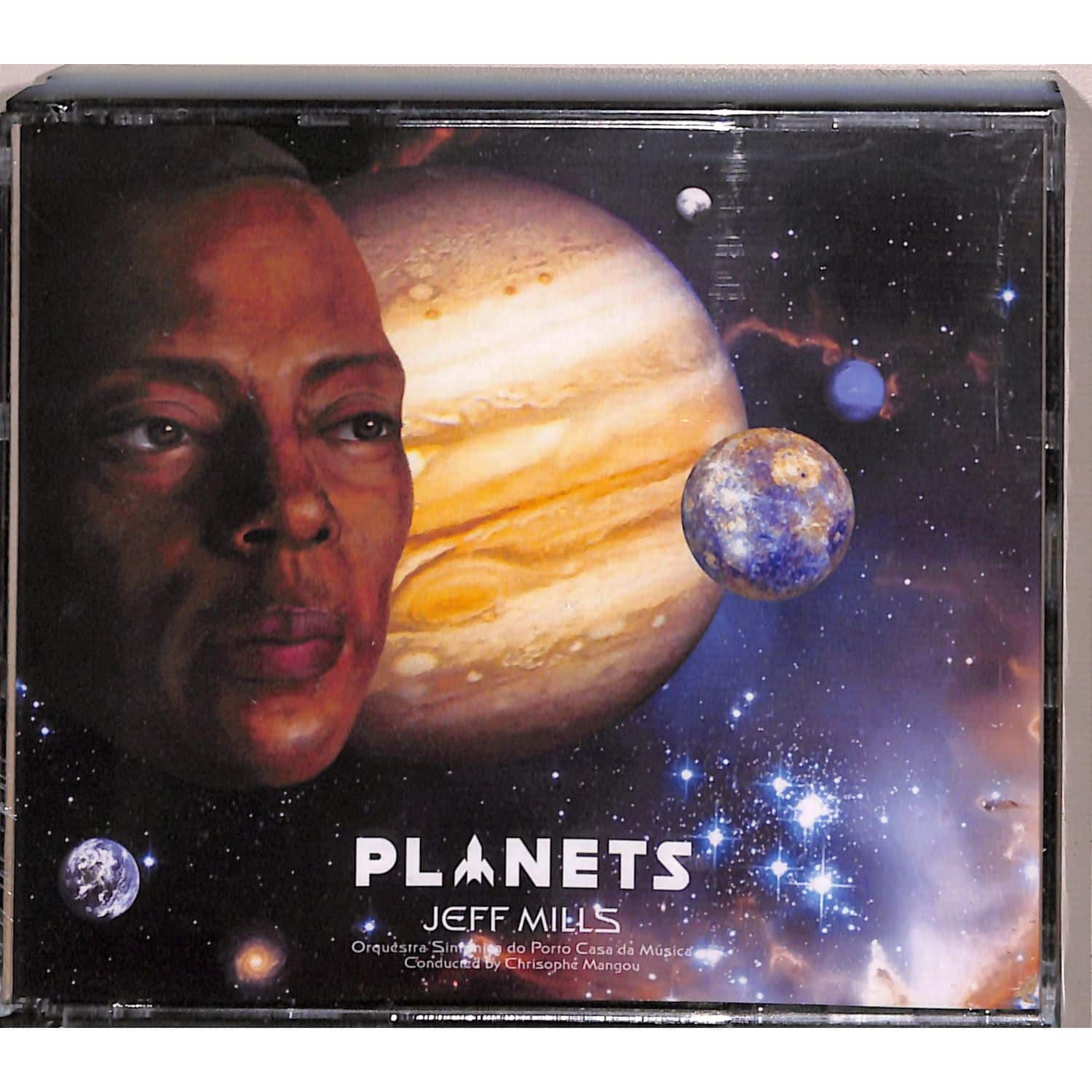
PLANETS
2 X CD / 32 Page Color Booklet
Sales Information:
CD1: PLANETS Classical Version (stereo)
1. Introduction
2. Mercury
3. Loop Transit 1
4. Venus
5. Loop Transit 2
6. Earth
7. Loop Transit 3
8. Mars
9. Loop Transit 4
10. Jupiter
11. Loop Transit 5
12. Saturn
13. Loop Transit 6
14. Uranus
15. Loop Transit 7
16. Neptune
17. Loop Transit 8
18. Pluto
CD2: Original Sketch (electronic version) (stereo)
1. Mercury
2. Venus
3. Earth
4. Mars
5. Jupiter
6. Saturn
7. Uranus
8. Neptune
9. Pluto
Planets And A Purpose
There could be intentions and not just coincidences to the timeliness of this and The Planets by Gustav Holst. Both released at similar eras of their centuries. Holst in 1918 and Mills at 2017, each are unique in terms of the economic and political conditions and uncertainty of emerging and expanding industries. In 1918, it was the end of the War and the Industrial Age, the replacement of manual labor with the invention of application of the tireless and union-free machine.
In 2017, people are once again, being replaced by another man-made creation, computers and the Internet in the workforce both eras of societies in transition, both greatly affected by identity, self worth and reflection of what it means to be worthy. Both eras are struggles of being barricaded by the past and forced to recognize the future even when its a future that seems to not recognize everyone.
The story of other Planets could be defined as an alternative to the conditions of the day or the situations here on Earth - a vehicle that looks beyond the points of here and now and focuses its view on the possibility that there will be other chances to exist - fresh starts on new worlds with new conditions. If it is intentional, then Planets serves more than just entertainment escapism or educational purposes. Its mere existence points to the subject of hope and continuation in times when its difficult to imagine and if we look forward another 100 years, we might find a similar case where the turn of a Century provokes humans to redefine, create and invent for the preparation of the new era past the new Century and there we might find another observation of The Planets.
- Jeff Mills
The history of Planets
It has been 100 years since the British composer Gustav Holst introduced his most famous score «The Planets». An elegant musical tour to each one of our Planets in the Solar System, Holst brought forth imaginary visions of space that would survive many generations and decades after. As an important piece to the classical universe, The Planets is regularly played throughout the World every year as it had been the most vivid translation of our cosmic neighborhood until now.
The Electronic Music artist and producer Jeff Mills, pays tribute to this century of incredible musical production. He embarks to compose a sonic journey to re-discover our neighboring planets in a 18 piece suite that explores the nine planets, including the portions of space in between the Planets, the nine regions Mills calls Loop Transits.
Deeply inhabited by science-fiction, Jeff Mills adopts its ideas, concepts, stories and esthetics from the outset. For him, Space is an obsession and his music almost becomes a musical science-fiction. Conquering space, his music embodies the future while both respecting the past and remaining well into the present. Mills takes the rotating principle of the solar system as aesthetics, concept and model for creativity. From the beginning, his first releases explore futuristic and science fiction topics and continue to do so to this day. For Jeff Mills, the future is a powerful creative drive which explains the artists ceaseless activity.
Since its creation and like the intention of Holst, each track is musically imagined to invoke the psychological affect, emotions and ideas of each planet. But unlike in the year 1918, when the score was first publicly heard on the last week of World War I, 100 years later, we now have a more accurate knowledge about what each Planet is made of and what they look like. The piece should bring the audience closer to confronting each planet in ways that audiences in 1918 could only dream of.
With the French composer Sylvain Griotto, the arranger of Planets and Mills previous work on the album and classical score about the NASA astronaut and doctor Mamoru Morhis space journey in 1992 and 2000 from the album Where Light Ends, Mills has created an electronic music album that have been translated for symphonic and philharmonic orchestras and will accompany them in their live debut and all performances. Starting to conceptualize and produce music for it dating back to 2005, Mills constantly worked on the project over the years to bring it to fruition.
In July 2016 Jeff Mills has completed the last production stages of the Planets album at the world famous Abbey Road Studios in London. Recorded and will be released in 5.1 surround on the Blue Ray digital format, the soundtrack needed a particular high level of expertise that could only be attended to at hands of the renowned senior studio engineer Jonathan Allen. The expertise and quality associated with the legendary Abbey Road Studios is recognized globally and undeniably the most famous studio in the World. It is with acclaim from the Beatles, Pink Floyd, or more recently Radiohead before him, that Jeff Mills will bring Planets at this legendary music institution.
The mastering sessions occurred on August 2016 with the acclaimed Mastering engineer Darcy Proper in Holland.
A serie of live listening sessions will be organise in various cities. More informations coming soon
[txt from ]

